on BusinessLoans.com
Best bad credit business loans in February 2026
Updated January 30, 2026
on Bankrate
on BusinessLoans.com
on Bankrate
on Bankrate
on Bankrate
on Bankrate
on Bankrate
on Bankrate
on Bankrate
on Bankrate
on BusinessLoans.com
How Bankrate works

How Bankrate works
Compare lenders
Bankrate evaluated multiple lenders to choose which ones have the best offers for business owners with sub-prime credit. Business owners can then compare options based on their business needs.
Get your personalized rates
Click "get personalized rates" and fill out some information to see what lenders you may be eligible for as well as preliminary loan details.
Apply and receive your loan
You can apply for any loan you qualify for that you've been matched with through Bankrate. You'll then be able to receive funding and manage your loan through your chosen lender.
A closer look at our top bad credit business lenders
Best overall for bad credit: Fundible
Fundible offers a wide range of financial products, many of which serve small businesses with poor credit. It only requires a minimum personal credit score of 580 to qualify. With reasonable interest rates and fast funding, Fundible is the best overall lender for those with bad credit.
Pros and cons
- No prepay penalties
- Fast funding
- Low personal credit score requirement
- May use a hard credit pull
- May charge an origination fee of up to 3%
- Loans secured by UCC-1 filing
Best for flexible payments: Businessloans.com
With a personal credit score of just 550 or above, you can qualify for a loan through Businessloans.com. While not a direct lender, you can use its website to compare loan offers from a variety of bad credit business loan lenders.
Pros and cons
- Compare loans from multiple lenders
- Relaxed eligibility requirements
- Quick online application
- Limited information on its website
- Potentially high fees
Best for fast prequalification: Credibly
Credibly offers quick prequalification for prospective borrowers. This, along with favorable terms and easier qualification terms, make Credibly a highly attractive option for business owners with bad credit.
Pros and cons
- Potential early repayment discount
- Prequalify in as little as 10 minutes
- Funds in as little as one day
- Unavailable in 13 states
- High minimum revenue requirement
- High minimum borrowing amount
Best for lines of credit: Fundbox
If your business needs a line of credit but have poor credit, Fundbox could be a good choice. It requires a personal minimum credit score of just 600, and it offers a quick application process that can give you a credit decision in as little as three minutes.
Pros and cons
- Fast access to funds
- Minimum credit score of 600
- Only $100,000 in annual revenue required
- Short repayment periods
- Can’t build business credit
- May come with high rates
Best lender for startups: Ondeck
OnDeck is best for startups because of its fast funding, variety of repayment terms and relaxed eligibility requirements. In fact, applicants can be approved for a loan with OnDeck with a minimum credit score of just 625.
Pros and cons
- Same-day funding
- Early repayment incentives
- Helps build business credit
- High APRs
- Loan origination fees
- Requires personal guarantees
Best for low payments: Triton Capital
While its time-in-business and revenue requirements are higher than other lenders on our list, Triton Capital offers large loans to businesses with poor credit in addition to relatively low starting rates.
Pros and cons
- Fast access to funds
- Low starting rates
- Offers Lowest Payment Guarantee
- High maximum rates
- High annual revenue requirement
- Potentially high fees
Best for microloans: Kiva
Kiva specializes in microloans starting at just $1,000. As long as you operate in an approved industry, Kiva can approve a wide range of different companies and financial situations.
Pros and cons
- No interest charges in U.S.
- No credit score requirements
- No additional fees
- Loans only go up to $15,000
- Must have community support
- Slow funding process
Best for working capital: PayPal
The popular consumer payment app also offers a wide range of products for small businesses, including loans. In fact, small businesses can borrow up to $300,000, and it only requires small businesses to have a minimum annual revenue of $15,000 to qualify.
Pros and cons
- Fast funding
- No credit score requirement
- Open to new business owners
- Short repayment terms
- Only available to PayPal users
- Not available in every state
Best CDFI for small business loans: Accion Opportunity Fund
Accion Opportunity Fund specializes in serving companies based in underserved communities. In addition to fair lending terms, it also offers business coaching and networking with other businesses in your community.
Pros and cons
- Low interest rates
- Helps minority businesses
- Mentoring and educational support
- Not available to new businesses
- Only offers loan amounts up to $250,000
Best for secured credit building: Bank of America
Bank of America requires a higher personal credit score than other lenders on our list. However, it has the benefit of being a large traditional bank with physical locations in most of the country — meaning in-person help with your loan application that you can’t get with online-only options.
Pros and cons
- Good variety of loan products
- Low interest rates
- Free business credit report
- Limited options if you have poor credit
- Limited information on website
- Slow application process
What is a bad credit business loan?
Bad credit business loans are designed for companies with poor or limited personal or business credit. Eligibility requirements for bad credit loans are typically more relaxed than traditional loans. Some lenders offer small business loans to owners with personal credit scores as low as 500.
Lenders typically place more emphasis on the personal credit score of the business owner, or anyone who is personally guaranteeing the loan, though business credit scores can be a factor as well. Depending on the scoring model, business credit scores may range from 0 to 100, with scores of 0 to 49 indicating a high-risk borrower.
Although it can be easier to qualify for bad credit business loans, keep in mind that they tend to have higher interest rates and fees, since the lender is taking more risk. They are also likely to require you to sign a personal guarantee.
How does a bad credit business loan work?
Business loans for bad credit borrowers work similarly to any other business loan, and the application process is largely similar. If approved, you can use your loan funds for business-related expenses. You then repay the bad credit business loan over a set time period with interest rates and fees.
Depending on the lender, underwriting for a bad credit business loan may take longer, and the lender is more likely to ask for supporting documentation that shows your ability to repay the loan. If you opt for a secured loan over an unsecured loan, you’ll need an asset of value as collateral, such as equipment or real estate. Unsecured loans don't need collateral but are aimed at companies with strong credit.
To improve your business credit score, begin by registering your company with Dun & Bradstreet and obtaining a DUNS number, which is a nine-digit identifier used to verify your business, track activity and establish a credit profile. Forming an LLC, obtaining an EIN and using a dedicated business bank account and credit card are additional measures that will reinforce your business’s credit profile and ensure visibility with the major credit bureaus.Thomas Brock: CFA, CPA
Requirements for a bad credit business loan
- Annual revenue. A lender may place more emphasis on your business revenue if your personal or business credit is poor.
- Business plan. Demonstrating how you expect to use your funds, grow your business and your projected revenue in a business plan can help you qualify for better loan terms.
- Credit history. Although it’s best to be upfront about your credit score, a lender will still request your full credit report to understand what is factoring into your score. If you are able to provide a reasonable written explanation for any bad marks on your report, some lenders may make an exception to minimum credit score requirements.
- Time in business. If you have been in business for a while, it may mitigate poor personal credit, especially if your business credit is strong. Many bad credit business loans want to see at least a year in business.
- Personal guarantee. Many business loans require you to sign a personal guarantee, which secures the loan with your personal assets. Most lenders require it in addition to collateral or a down payment.
- Existing business debt. The lender will consider your existing debts and whether you have enough financial strength to cover repayments on a new loan.
Watch out for potential scams
When you’re getting any type of loan, especially one for businesses with poor credit, you should be on the lookout for scams, malicious actors and bad deals.
Some red flags to keep an eye out for are:
- Time pressure. Be wary of any lender advertising time-limited deals that encourage you to get a loan before you have time to think about it.
- Guaranteed approval. No good lender will approve every application it sees, so if you see this promise, be wary.
- Upfront fees. Be careful of online lenders that ask for upfront fees, such as application fees. If the lender is a scammer, you might pay the fee and never hear back.
How to get a small business loan with bad credit
1. Make sure your business can afford the funding request
Use Bankrate’s business loan calculator to project your monthly payments and how they factor into your current finances. Make sure to account for origination and other fees that the lender will add to that amount. Budget for an amount that will cover your needs while making sure you can afford the monthly payments.
2. Take time to improve your credit score if you can
If you have some time before you need funding, look at your personal and business credit reports to identify anything you can improve. You may come across errors that can be corrected, or pay down as much debt as you can to try and boost your score.
3. Strengthen your application
You might be able to get a better loan with some strategies:
- Add a cosigner. It is possible to add a cosigner on a business loan to act as another guarantor. An ideal cosigner is someone you trust, who has strong personal credit and personal finances.
- Offer collateral. Collateral such as real estate, large equipment or inventory can offset some of the lender’s risk, especially if you have poor credit. In the event of a default, a lender can liquidate your collateral and use it to repay the remaining loan amount.
4. Research bad credit business lenders
Look for business lenders that are willing to work with business owners who have poor credit and narrow down your options based on eligibility requirements, interest rates and fees. Many online lenders will post their minimum requirements on their websites. If you have questions about a lender’s requirements or other loan features, you can contact the lender for more information.
Be cautious of high-cost loans
Many business loans for bad credit borrowers charge factor rates like 1.10 or 1.40 instead of interest rates. These factor rates get applied to the entire loan upfront and often convert into high interest rates.
For example, a factor rate of 1.30 converts to a 20 percent annual percentage interest rate (APR) for an 18-month loan. For a $50,000 loan repaid over 18 months with a factor rate of 1.30, you’d end up paying $15,000 in interest versus about $8,287 for the same loan with interest charged as an APR.
Types of bad credit business loans
There are many types of business loans for borrowers with bad credit. Some of these loans are secured or have automated repayment plans, which may make them easier to qualify for than unsecured loans.
Where to get a bad credit business loan
Many lenders offer business loans for bad credit. The right one for you will depend on the type of loan you need and who offers the best rates, terms and features. Make sure to shop around before accepting any offer.
- Banks. Even though banks tend to have the most strict qualification requirements, if you have a good relationship with your bank, it may be worth checking to see if they’ll lend to you before you look for other options. If they issue you a loan, it will likely be more affordable than other financing alternatives.
- Community Development Financial Institution (CDFI). A Community Development Financial Institution is a lender that specifically aims to serve low-income and other underserved communities. They often have more lenient or flexible qualification requirements, including personal credit score.
- Minority Depository Institutions (MDI). An MDI is an institution that is either mostly owned by minority individuals, or its board members are mostly minority individuals. They typically specialize in lending to minorities or underserved communities, and may have more lenient personal credit requirements than traditional institutions.
- Online lenders. Online lenders often specialize in fast approval and funding. Many also work with bad credit borrowers, but their interest rates and fees can be quite high.
- SBA lenders. These lenders are approved by the Small Business Administration to provide loans that are backed by the SBA. Each lender sets its own requirements, usually wanting a solid credit history. But business owners with bad credit may qualify through community-based lenders or for specialized loans like SBA microloans.
Alternatives to bad credit business loans
If you aren't sure that a bad credit business loan is right for you, consider these alternatives:
Frequently asked questions
How Bankrate chooses our best bad credit business loan lenders
Bankrate's trusted small business loan industry expertise
57
years in business
30
lenders reviewed
22
loan features weighed
770
data points collected
- Small-business
- Small-business loans


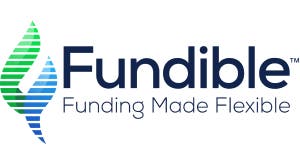
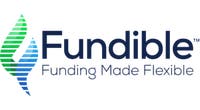
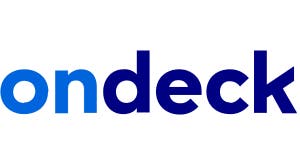
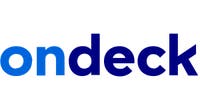
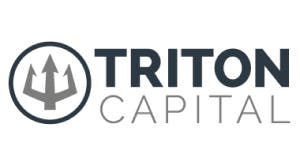
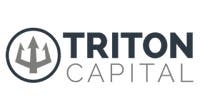
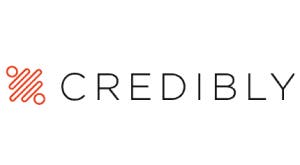
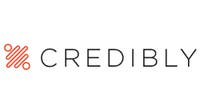
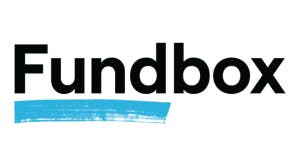
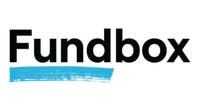
.png?optimize=medium&format=pjpg&auto=webp)
.png?optimize=medium&width=200&format=pjpg&auto=webp)
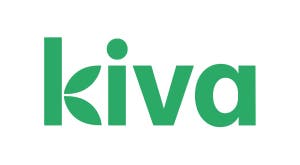
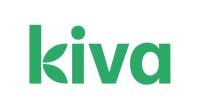
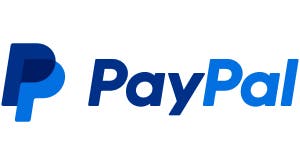
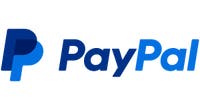
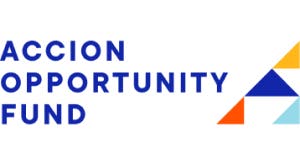
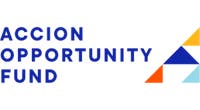
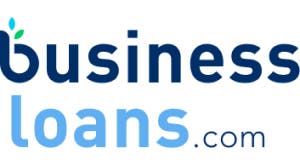
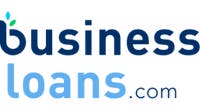









.png?auto=webp&fit=&width=200&format=pjpg)
